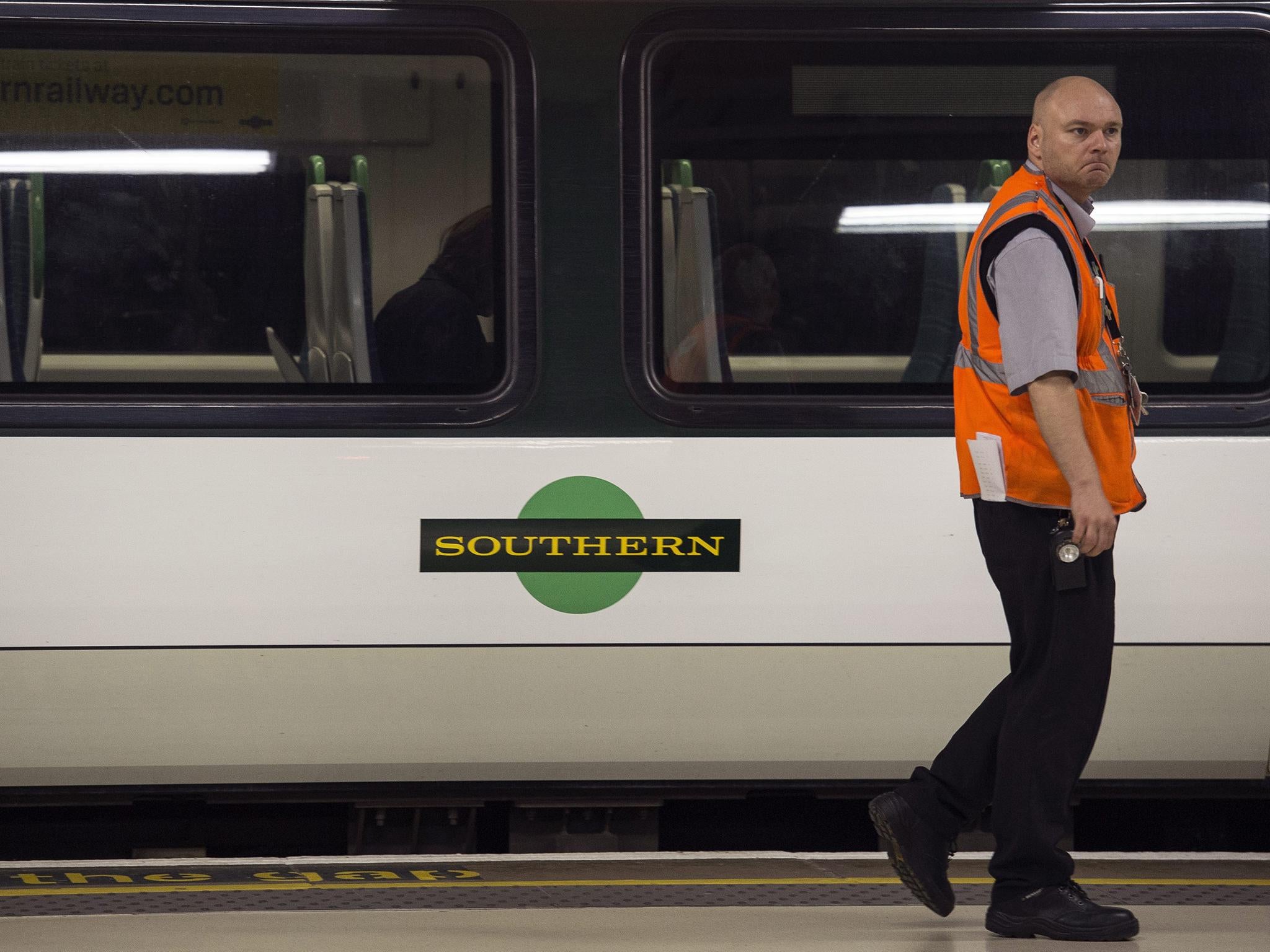Train strikes: Could the railways’ summer of discontent be the first wave of post-Brexit industrial strife?
The RMT announced seven days of industrial action on Eurostar cross-Channel trains, beginning this weekend, while four out of five RMT members working for Virgin Trains East Coast voted in favour of a strike

Your support helps us to tell the story
From reproductive rights to climate change to Big Tech, The Independent is on the ground when the story is developing. Whether it's investigating the financials of Elon Musk's pro-Trump PAC or producing our latest documentary, 'The A Word', which shines a light on the American women fighting for reproductive rights, we know how important it is to parse out the facts from the messaging.
At such a critical moment in US history, we need reporters on the ground. Your donation allows us to keep sending journalists to speak to both sides of the story.
The Independent is trusted by Americans across the entire political spectrum. And unlike many other quality news outlets, we choose not to lock Americans out of our reporting and analysis with paywalls. We believe quality journalism should be available to everyone, paid for by those who can afford it.
Your support makes all the difference.Pity the poor passenger whose destination is Brighton, Brussels or Berwick-upon-Tweed: the threat of rail disruption hangs over these journeys, and many more.
The five-day strike on Southern Railway may have been called off halfway through in what is rapidly becoming a summer of discontent for rail travellers, but few in the industry give renewed talks at Acas over driver-only operation much chance of success. And while the train operator accepted the offer of the RMT union to abandon industrial action if talks were resumed, members of the rail union working for other firms are in no mood to compromise.
The RMT announced seven days of industrial action on Eurostar cross-Channel trains, beginning this weekend, while four out of five RMT members working for Virgin Trains East Coast voted in favour of a strike.
It follows industrial action on ScotRail, also related to driver-only operation of new trains. A ceasefire in that dispute is in progress, but the train operator has accused the union of “disinformation that doesn't bear any scrutiny”. Talks are continuing, but the RMT is holding a public meeting in Dundee on Monday demanding: “Keep the Guard on the Train – Keep the Train Safe.”
While the Gatwick Express was not directly affected by the Southern strike, the train drivers’ union, Aslef, is balloting its members over industrial action on the airport service.
The fragmentation of the rail industry in the last two decades, together with the extraordinary tangle of regulations and working practices that pre-date privatisation, means the scope for strife is considerable.
The rail unions have a reputation for being more militant than the mainstream Labour movement. Both Aslef and the RMT urged members to vote Leave in the EU referendum, saying respectively: “The EU is anti-worker and cannot be reformed” and “Leave the EU to end attacks on rail workers”. Meanwhile the white-collar rail union, the TSSA, is backing Jeremy Corbyn in the Labour Party leadership battle.
The new post-referendum Government has hardened the propensity for confrontation. The previous transport secretary, Patrick McLoughlin, was well regarded across the rail industry. But his successor – Brexit campaigner Chris Grayling – is seen as a hard-line choice to push through change.
The RMT has repeatedly said that it has been on the verge of agreement with GTR, the parent company of Southern, only for a deal to be scuppered on the say-so of the Department for Transport. It appears increasingly clear that the DfT sees the lines south of London to Surrey and Sussex as the industrial battleground to modernise the rail industry. The thinking at Westminster is that overcoming the rail unions’ opposition to change would represent an early win for the May Government, and be seen as a welcome pro-business achievement.

The union insists its stance is solely based on safety, but members fear – probably quite correctlly – that accepting “driver-only operation” on all trains would represent the thin edge of a wedge. They believe that it could threaten many of their hard-won working conditions – and possibly jobs.
Political antagonism is only one ingredient in the toxic industrial conflicts that threaten to prevail into the autumn. The strike calls at Eurostar and Virgin Trains East Coast, being centred on rostering and potential job cuts respectively, concern more traditional disputes.
But both train operators, which have hitherto prided themselves on good labour relations, are living in a post-Brexit world in which revenue forecasts look overoptimistic. Eurostar – already hit by the deterrent effects of terrorist attacks in its two destination countries of Belgium and France – is facing weakening demand as economic uncertainty intensifies. Indeed, while the London-Brussels route should continue to deliver healthy yields while Brexit negotiations are taking place, once the UK leaves then traffic to the Belgian capital is expected to drop substantially.
Virgin and Stagecoach, meanwhile, the partners on the East Coast franchise, were not expecting a Leave vote and all the uncertainty it involves when they tendered ambitiously for the line from London to Edinburgh.
Train operators are unwilling to throw money at problems, and indeed they will look ever more intensely at costs as revenue fails to achieve targets. And for costs, read jobs and inefficient working practices.
Join our commenting forum
Join thought-provoking conversations, follow other Independent readers and see their replies
Comments